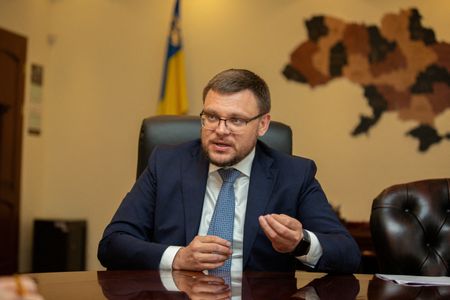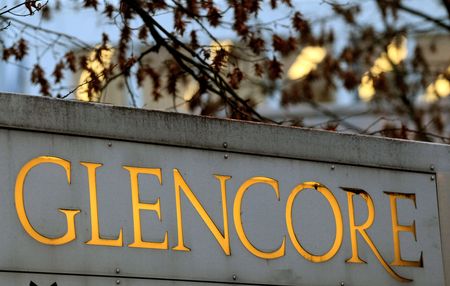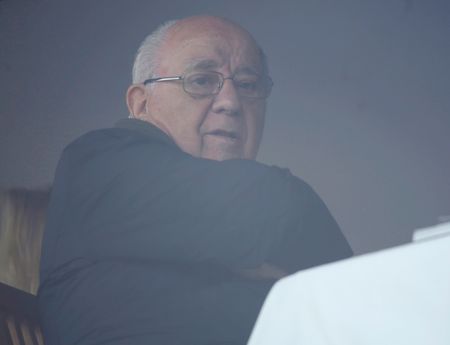By Dan Peleschuk
KYIV (Reuters) -Ukraine has toughened restrictions on two anti-corruption agencies at the centre of the government’s reform drive, rolling back their autonomy in favour of tighter executive control.
Stamping out endemic graft is a requirement for Kyiv to join the European Union as well as to secure billions in Western aid. Independent investigators have in recent months embarrassed senior officials with allegations of corruption.
Amendments passed on Tuesday grant the general prosecutor, appointed by the president, strict control over the National Anti-Corruption Bureau of Ukraine and the Specialised Anti-Corruption Prosecutor’s Office, several lawmakers said.
The vote drew sharp criticism from the heads of both agencies and a top EU official, and spurred the largest public protests since Russia’s full-scale invasion of Ukraine in 2022.
The vote came a day after Kyiv’s domestic security agency arrested two NABU officials on suspicion of ties to Russia and conducted sweeping searches into agency employees on other grounds. Critics and the two agencies said the crackdown went too far.
President Volodymyr Zelenskiy, whose party holds a majority in parliament, approved the amendments late on Tuesday. The changes would allow the general prosecutor to transfer cases from the agencies and reassign prosecutors.
In his nightly video address, issued well after midnight, Zelenskiy said he had spoken to NABU chief Semen Kryvonos and other top prosecutors. Anti-corruption bodies, he said, would continue to function “but without any Russian influence. It all must be cleansed.
“There must be more justice. Of course, NABU and SAPO will continue their work,” he said. “It’s also important that the prosecutor general be committed to ensuring real accountability for those who break the law. This is what Ukraine truly needs.”
Kryvonos had urged Zelenskiy not to sign the fast-tracked bill, which he called an attempt to “destroy” Ukraine’s anti-corruption infrastructure.
After Tuesday’s vote, Ukraine’s government bonds fell more than 2% on international markets, with the bulk of the $20 billion of debt restructured last year down over 1 cent at between 45 and 50 cents on the dollar.
Hundreds of Ukrainians protested near the presidential administration in central Kyiv late on Tuesday, with smaller actions taking place in several other cities.
One senior official linked to the military, the head of the HUR military intelligence service, Kyrylo Budanov, called for efforts to eliminate wartime differences in Ukrainian society.
“We have one common misfortune, one enemy,” Budanov wrote on Telegram, without specifically referring to the legislation.
“It is therefore worth resolving internal contradictions through open dialogue to achieve a single common goal – to defend our country.”
PRESSURE ON AGENCIES
Writing on X, EU enlargement commissioner Marta Kos said she was “seriously concerned” by Tuesday’s vote.
“The dismantling of key safeguards protecting NABU’s independence is a serious step back,” she said, adding that rule of law was at “the very centre” of EU accession talks.
NABU and SAPO were established after the 2014 Maidan revolution that toppled a pro-Russian president and set Kyiv on a Western course.
The two agencies have stepped up their work during the war, levelling charges against lawmakers, ministers and a former deputy head of Zelenskiy’s administration.
Anti-graft campaigners have been alarmed since authorities charged a top anti-corruption activist this month with fraud and evading military service. Critics have cast those charges as political retribution for exposing corrupt officials.
The government has also faced criticism for rejecting the candidacy of an economic security chief and current NABU detective who was unanimously backed by an internationally supervised committee.
‘MOST DANGEROUS MOMENT’
A Western diplomat familiar with Ukraine’s reform effort described the developments as “the most dangerous moment” yet for the independence of anti-corruption authorities.
“The Ukrainian side is testing the limits more and more,” the person said, referring to the patience of Kyiv’s allies.
Influential Ukrainians denounced the vote on social media as a betrayal of Ukraine’s decade-long geopolitical ambition.
Fighting corruption is seen as critical to erasing a legacy of Russian rule, a sentiment echoed at the protest in Kyiv.
Vladyslava Kirstyuk, 18, said memories of her childhood in occupied eastern Ukraine, after Russia’s covert invasion in 2014, left a strong impression.
“I know what it means for one person to have all the power, when nothing is transparent and everything is working against you,” she said. “I don’t want it to be the same for us here.”
(Additional reporting by Anastasiia Malenko, Yuliia Dysa and Mark Jones; Editing by Bernadette Baum, Rod Nickel, Ron Popeski and Leslie Adler)









